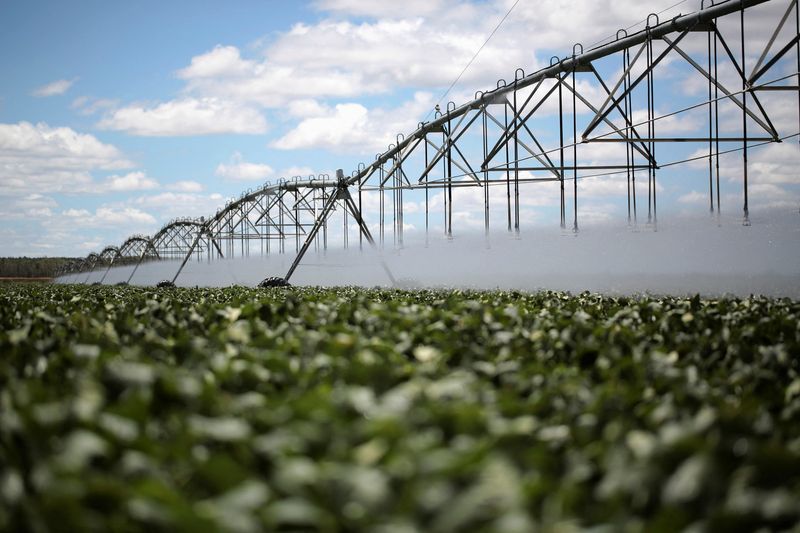By Ana Mano and Roberto Samora
SAO PAULO (Reuters) – Brazilian farmers are keener to switch to bioinputs than peers in other countries, according to new research showing the average annual growth of the market was 21% in the last three years, four times above anywhere in the world.
According to data released on Tuesday by Croplife, a Brazilian lobby representing biotech, chemical and bioinput companies, retail sales of “biocontrol” tools in the country reached 5 billion reais ($924 million) in the 2023/2024 season.
Bioinputs, essentially a biological solution to the problems of modern agriculture, are an alternative to the use of pesticides and fertilizers to control pests and improve crop yields.
Brazil’s bioinputs are mainly being applied on soybean, corn and sugarcane fields, but have also been used by cotton and coffee farmers to a lesser extent, the research found.
Mato Grosso state, Brazil’s largest farm products supplier in the center west of the nation, has championed use of bioinputs, representing some 33% of the domestic market, Croplife data showed.
Embrapa, Brazil’s agricultural research agency, defined biological inputs as products or processes developed from enzymes, extracts from plants or microorganisms, among others, which are intended for biological control.
Such inputs can also be used as plant growth promoters, biotics and abiotic stress relievers, and may act as substitutes for antibiotics, according to Embrapa.

Brazil, the world’s biggest soybean, coffee, sugarcane and orange juice exporter, as well as a competitive corn supplier, is a promising market, according to the research.
($1 = 5.4134 reais)

